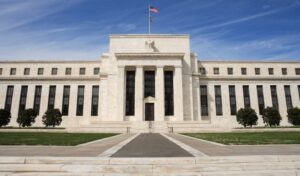
Wall Street Journal conference in New York brings together prominent regulators and industry insiders for wide-ranging discussions.
Some of the most prominent figures in finance and government recently gathered at the Four Seasons Hotel in New York City to discuss the past, present, and future of financial regulation. The conference, hosted by the Wall Street Journal, featured speakers from both the government and industry discussing themes as varied as the government’s response to the 2008 financial crisis, possible improvements to the current financial regulatory regime, the opportunities and challenges that technology creates for regulators, and the impact of the 2016 election results on the financial regulatory agenda.
Sheila Bair, current Washington College President and former Federal Deposit Insurance Corporation (FDIC) Chair, spoke on the topic of whether regulators “got it right” in the aftermath of the financial crisis. While praising some aspects of post-crisis rulemaking, she noted her preference for “rules that align economic incentives” over the “prescriptive” rules she believes largely make up the Dodd-Frank Act.
Bair also mentioned that “regulators are still a little gun shy” due to political pressure. She advocated for a return to what she called “first principles” of regulation: cabining the “moral hazard” created by FDIC insurance and other safety nets for the financial system and ensuring that incentives to take risk are appropriately managed.
On a similar note, Paul Volcker, Chairman of the Volcker Alliance and former Chair of the Board of Governors of the Federal Reserve, acknowledged frustration with the current fragmented financial regulatory system: “Nobody likes it, but nobody wants it to change, because they’re afraid that they’re going to lose out in the transition, so it doesn’t get done.” He also expressed concern that this fragmentation has led to too much focus on commercial bank reform and too little on “shadow banking”— lightly regulated non-bank institutions or practices that nonetheless influence financial stability.
Also expressing dissatisfaction with current financial regulators, Senator Mark Warner (D-Va.), a member of the Senate Committee on Banking, Housing, and Urban Affairs, spoke about the Congressional agenda for financial regulation. Most of his discussion was centered on the recent Wells Fargo scandal and the ensuing Senate hearing. He expressed “surprise, outrage, and disappointment,” noting that a settlement without an admission of guilt is “not a satisfactory answer” for the American public.
Given the publicity of the Wells Fargo case, it is perhaps not surprising that during a panel on enforcement, Robert Warner, Global Head of Financial Crime Compliance at HSBC, expressed concern that there exists “tremendous fear” in the industry about compliance responsibilities. Panelists throughout the day lamented the unpredictability of enforcement actions: former Deputy Comptroller of the Currency Jo Ann Barefoot stated that due to their relative novelty, financial technology (FinTech) companies exist in a “permanent state of regulatory uncertainty” and are forced to overcompensate as a result. Barefoot did note, however, that the OCC’s recent of specialized federal charters for FinTech companies represented a “breakthrough” for the industry.
The intersection of regulation and technology was a hot topic throughout the conference. Alistair Rennie, General Manager of Solutions at IBM Watson Analytics, spoke at length about ways that technological innovation could improve regulatory compliance. In particular, he singled out data collection methods that would eventually use artificial intelligence systems to detect signals like a “change in tone” that might portend risky behavior and aid compliance officials in discovering violations.
Data collection was also a focus on the regulatory side, as J. Christopher Giancarlo, Commissioner of the U.S. Commodities Futures Trading Commission (CFTC) expressed frustration with existing data collection methods, mentioning that some of the market data collection required by the Dodd-Frank Act still have not occurred due to questions about formatting. “We’re trying to regulate twenty-first century markets using twentieth century thinking and twentieth century analog tools,” Giancarlo said. He sees this trend improving as more modern companies enter the market, particularly FinTech companies, who may be able to use real-time technology to collect and present data in ways that will ease the burden on regulators.
In a similar vein, Sarah Bloom Raskin, Deputy Secretary of the U.S. Department of the Treasury, spoke about data sharing as a way to improve cybersecurity in the financial sector. Raskin spoke at length about how the government needs to “do more” to speed reaction times and develop best practices by encouraging banks to share information amongst themselves about cybersecurity measures. She also pointed to the recent G7 cybersecurity guidelines as an example of how cooperation between governments can improve security for both regulators and industry.
Looking forward to the 2016 election, Democrat and former U.S. Representative Barney Frank discussed how Democratic presidential nominee Hillary Clinton would “improve” the Dodd-Frank Act if she were elected, while Donald Trump, the Republican presidential nominee, would “dismantle” it. He also praised Gary Gensler, the former CFTC Commissioner and the likely Treasury Secretary under Clinton, stating that, “in my time, the two toughest regulators were [Gensler] and Sheila Bair.”
On the other side of the aisle, conservative columnist and informal Trump advisor Lawrence Kudlow again highlighted the fragmentation of the financial regulatory system, calling it a “crazy quilt.” Discussing the likely priorities of a possible Trump Administration, he stated that Republicans would also seek to “fine-tune” Dodd-Frank, arguing that the current regulatory system depresses small business growth, which he called the “engine of job creation.” To that end, he stated that Republicans would focus on increasing tax cuts.
Finally, Antonio Weiss, Counselor to the Secretary of the Treasury Department, wrapped up the conference with a talk on the Obama Administration’s legacy in financial regulation. Bringing the conference themes full circle, Weiss noted the economic progress made since the 2008 financial crisis, citing the unemployment rate and job growth as evidence of a growing economy.
He noted, however, that there were still political challenges ahead for the Administration—pointing in particular to the appropriations funding bill deadline looming in December. He described the Obama Administration as “steadfast” in ensuring any future appropriations bill that would weaken financial reform does not pass.



